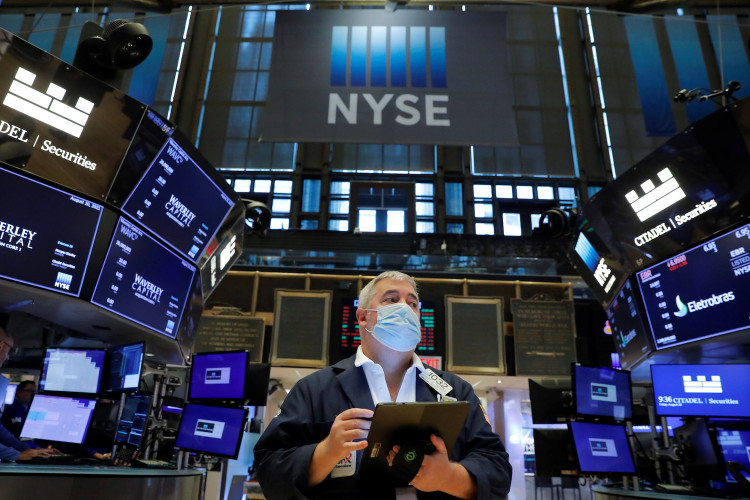U.S. stocks plunged Monday and the dollar sank to its lowest level in over three years as investors reacted to President Donald Trump's escalating criticism of Federal Reserve Chair Jerome Powell and deepening concerns over trade policy. The Dow Jones Industrial Average fell 850 points, or 2.17%, while the S&P 500 dropped 2.26% and the Nasdaq Composite tumbled 2.67%.
The dollar index, which measures the U.S. currency against six major peers, declined by 1%, continuing its slide as Wall Street questioned the stability of U.S. monetary policy. Gold surged more than 2% to a record high above $3,400 per troy ounce, and the 10-year Treasury yield climbed to 4.365%, reflecting a surge in demand for safe-haven assets.
"Recent market action shows a loss of confidence in Trump economic policy," Krishna Guha, vice chairman at Evercore ISI, wrote in a Friday note, pointing to rising Treasury yields and the dollar's continued weakness.
President Trump intensified his attacks on Powell on Monday, writing on Truth Social, "Unless Mr. Too Late, a major loser, lowers interest rates, NOW," in reference to Powell's reluctance to cut rates amid what Trump described as "virtually No Inflation." He accused the Fed chair of acting only "to help Sleepy Joe Biden, later Kamala, get elected," and added that Powell "has always been 'To[o] Late.'"
On Thursday, Trump told reporters, "If I want him out, he'll be out of there real fast, believe me. I'm not happy with him." The remarks came days after Powell warned that tariffs posed a threat to economic growth and could fuel inflation, complicating any future interest rate decisions.
Though Trump appointed Powell in his first term, he has consistently criticized the Fed chair for refusing to lower rates more aggressively. Trump's campaign against Powell has now extended to potential removal, with National Economic Council Director Kevin Hassett stating Friday that the administration would "continue to study" the legal possibility of firing the Fed chair.
"Trade policy is not the only channel through which the administration's unconventional approach could undermine the dollar and U.S. asset markets," Jonas Goltermann, senior markets economist at Capital Economics, said in a Thursday note.
While presidents have never fired a Fed chair for policy disagreements, the prospect has unsettled markets. "Bond investors really don't like Fed's independence impaired," said Mark Zandi, chief economist at Moody's Analytics. "If President actually did fire Powell, the bond market would throw up all over it and long term interest rates would go skyward."
The Federal Reserve's next policy meeting is scheduled for the first week of May. The CME FedWatch tool shows about 88% of traders expect the Fed to keep rates steady. Morgan Stanley analysts noted Monday that "Powell reiterated that the Fed is likely to remain in wait-and-see mode as it assesses the effect of tariffs on the economy."





